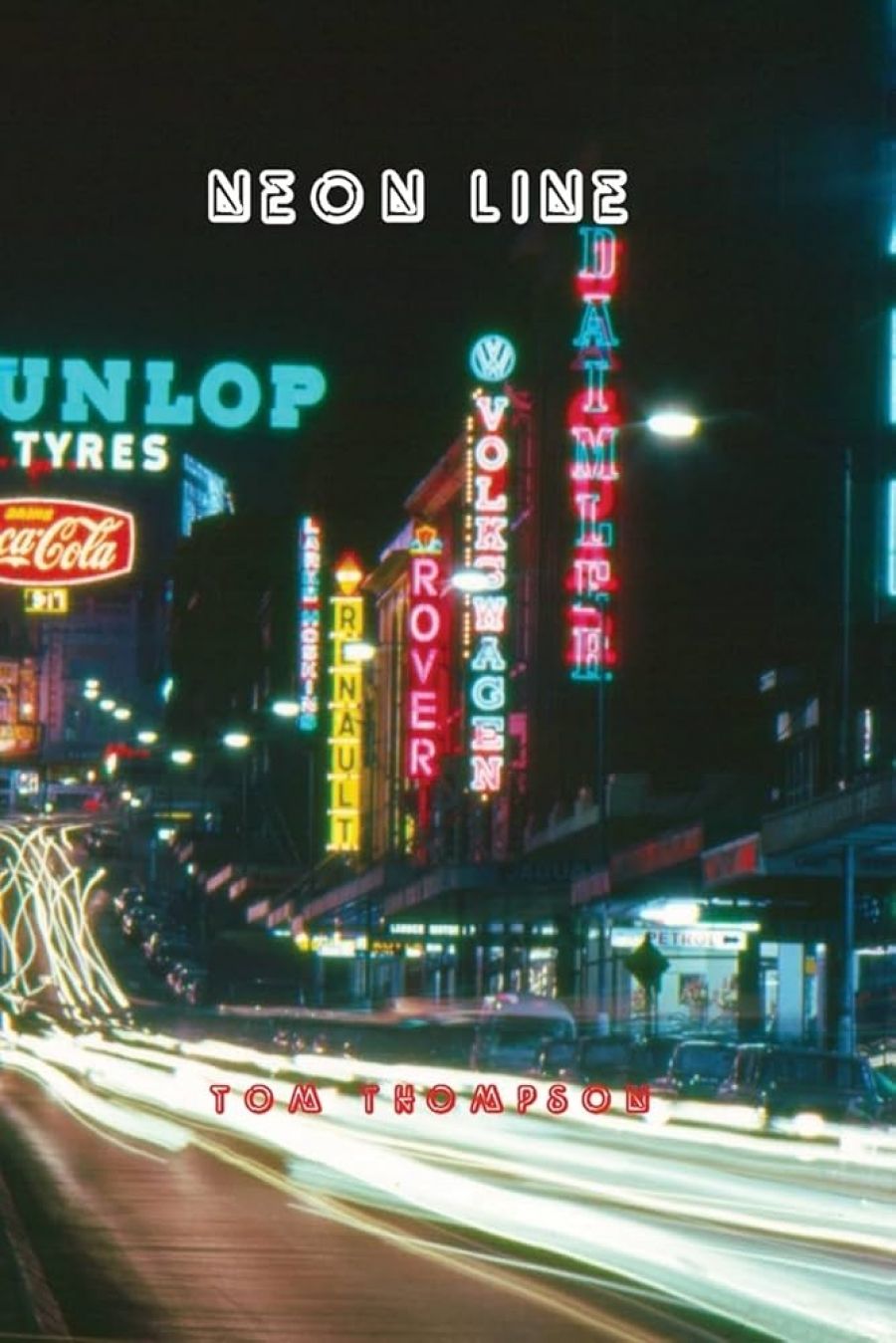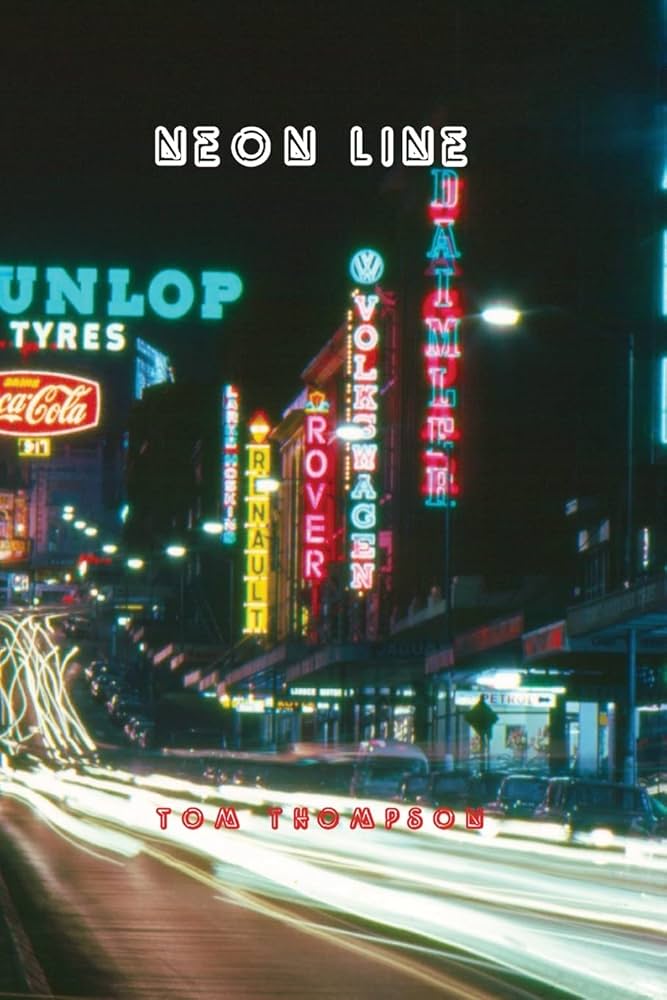
- Free Article: No
- Contents Category: Fiction
- Review Article: Yes
- Article Title: Unspectacular prose
- Online Only: No
- Custom Highlight Text:
Of these two unspectacular books from Second Back Row Press I found Tom Thompson’s Neonline the more rewarding.
It is a book that resists easy identification, being neither a novella nor a sequence of related short stories, and possessing neither a total scheme nor a clutch of subplots, no climax and no emergent theme. There is however a focusing eye, and this restively pursues a loose family of characters around a credible Sydney landscape, which in the closing pages moves via Singapore and Java to Bali.
- Book 1 Title: Big Boys
- Book 1 Biblio: Second Back Row Press 1978, ISBN O 9093 2512 X
- Book 2 Title: Neonline
- Book 2 Biblio: Second Back Row Press 1978, ISBN 0 909325 13 8
- Book 2 Cover Small (400 x 600):

- Book 2 Cover (800 x 1200):

The organising principle is poetic, meaning images recur strategically from vignette to vignette, and emphasis is placed on shifts of mood. Thus in the first five ‘chapters’ the focus is on the feeling of isolation and dislocation of the unmarried mother, Marlene, a tragic and haunted figure who, by the time she leaves the narrative, is clearly prepared for suicide. The following five chapters enter a wider context of violence, accident, addiction and frenetic, menacing sex. There is described, for instance, an orgiastic party held by Sydney University people, the chill seduction of a part-time motel-maid, Rada, by an American, Jerk, and the witnessing of a fatal accident by the book’s shyest and most ubiquitous character, Sam. The final six chapters widen the context further when Sam and girlfriend, Donna, travel in Southeast Asia, progressing through dysentery, tragic memories of sexual frustrations to an uneasy limbo in Bali.
The outstanding success of Neonline, to my mind, is Thompson’s portrayal of Marlene, where he has captured through the voice of the woman herself, a tortured, lonely, and, utterly persuasive individual, an achievement which is apparently rare in male-written fiction.
The absence of orthodox developments in the narrative is of course deliberate, for the author’s interest here is on the process of events, not their outcome. This is appropriate to the incoherence and disintegrated nature of the city – and travel – life represented, but it is a mode of storytelling prone to crippling weaknesses. In jettisoning plot, and hence suspense, the burden of sustaining a reader’s interest falls on lyric detail. Thompson manages this well at the book’s outset with a surrealist strangeness, as in the description of Marlene in her kitchen wearing ‘an ice-silk night-dress ... under a single globe’ with her reddish hair, but the middle of the book detail-bombardment has become tedious, and I at least found myself hungry for a more conventional, more decisive, less quirky narrative, a deeper comprehension of some characters, particularly the ubiquitous Sam.
One further cause of dissatisfaction arises much nearer the practice of writing English prose, namely a frequency of grammatical errors – wrong punctuation, unintelligible word-order, and spelling mistakes that should have been eliminated by rigorous editing.
Phillip Edmonds’ Big Boys includes a number of childhood sketches set in Melbourne, some travel sketches from Greece, some poems, and a political fantasy entitled ‘Bernie’. The narrative tone is a studied and unrelieved deadpan. Incidents are told, never demonstrated. There is no evidence to suggest that the author lacks a talent for creating enlivening dramatic moments, or even dialogue. He would appear to be simply indifferent to such things, an indifference which alas may, and should, cost Big Boys its readership.


Comments powered by CComment